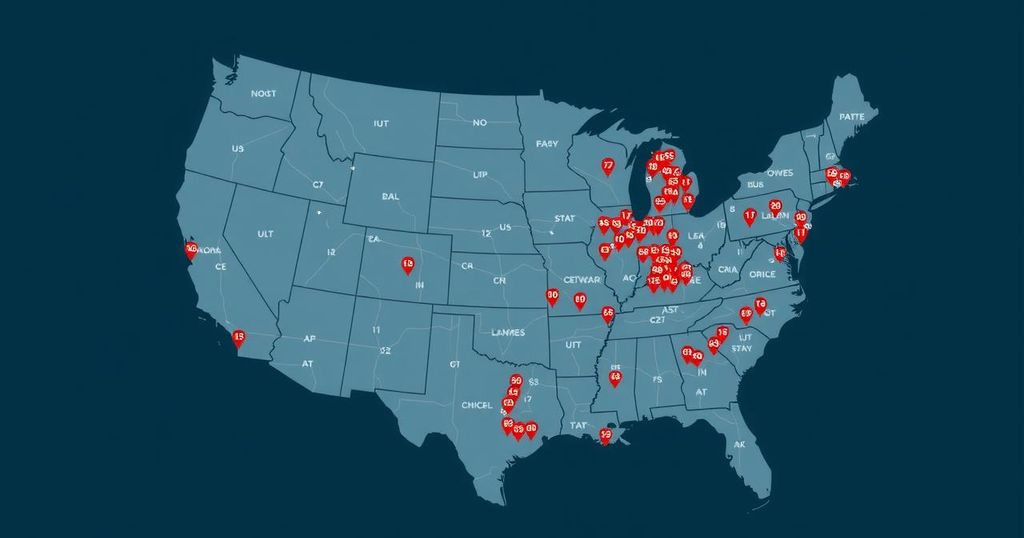In 2024, extreme weather events significantly disrupted elections in 14 countries, exacerbated by climate change. Various incidents, including storms and heatwaves, delayed voting activities and posed challenges to electoral integrity. The Election Emergency and Crisis Monitor catalogues these challenges, providing data and insights on the effects of climate-related disasters on elections worldwide.
During the Supercycle election year of 2024, extreme weather phenomena had significant impacts on the electoral processes in 14 countries, including Bosnia & Herzegovina, India, Mexico, Senegal, Tuvalu, and the United States. Climate change exacerbated many of these events, disrupting essential phases of the electoral cycle such as voter registration, campaign activities, voting operations, and result announcements.
In February, a storm and high tides in Tuvalu delayed the Prime Ministerial vote, particularly affecting parliament members from outer islands who were unable to reach the capital. In April, severe heat during India’s largest-ever election led to several fatalities, including election officials. Heavy rainfall in Styria, Austria, during the EU elections in June necessitated the relocation of polling stations. A record-breaking heatwave in Mexico in July caused heat-related illnesses among voters, which resulted in many leaving polling places without casting their votes.
Further complications arose in Bosnia & Herzegovina in October when local elections were postponed in five municipalities. Notably, the US Presidential elections were influenced by Hurricanes Helene and Milton, which struck North Carolina, leading to over 200 fatalities just weeks before the voting. Additionally, severe flooding affected the electoral process in Senegal during the Parliamentary elections in November.
International IDEA’s Election Emergency and Crisis Monitor (EECM) catalogues these electoral challenges caused by extreme weather events, including floods, hurricanes, heatwaves, wildfires, and natural disasters such as earthquakes. The dashboard features 65 country briefs, ranging from 2001 to 2024, providing detailed analysis and data regarding election disruptions due to hazardous events.
The EECM offers comprehensive coverage of the impact of natural disasters on elections by allowing users to search by various factors such as country, region, and hazard type. Each country brief gives an overview of how disasters have affected electoral integrity, including the societal impacts, legal adaptations, and measures taken to ensure safe voting. Moreover, a bibliography provides resources for further understanding of the challenges posed to electoral processes by adverse climatic conditions.
The increasing impact of climate change has led to an uptick in extreme weather events globally, which have been shown to disrupt various societal functions, including elections. Subsequently, countries are faced with challenges to democratic processes, particularly during critical electoral moments. Understanding the relationship between disasters and elections is crucial for safeguarding electoral integrity and ensuring that citizens can participate in the democratic process without undue hindrance. With various stakeholders interested in tracking these disruptions and the adaptive measures undertaken, platforms like the Election Emergency and Crisis Monitor have emerged to provide vital insights into the relationship between natural disasters and electoral integrity.
In summary, the significant influence of extreme weather on elections during the 2024 Supercycle year highlights an urgent need for attention to climate-related electoral challenges. The comprehensive data provided by platforms such as the EECM facilitates a better understanding of how disasters affect electoral processes and underscores the importance of implementing adaptive measures to preserve the integrity of democratic elections amidst increasing climate volatility.
Original Source: www.idea.int






